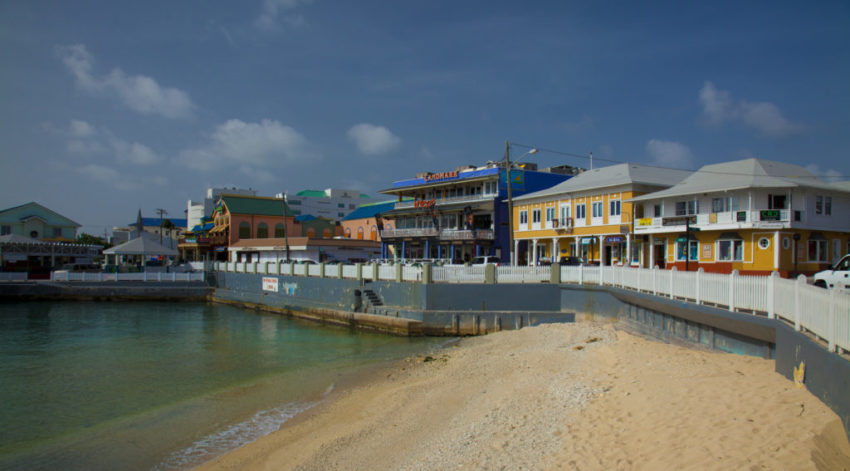That the Cayman Islands, famous for having more registered companies than inhabitants, was added to the European Union’s blacklist of global tax havens just a few weeks after the UK’s official withdrawal from the European Union should come as no surprise.
With years of wrangling over Britain’s status in Brussels finally coming to a close, the EU seems intent on reaping its own Brexit dividend to tie up some longstanding regulatory loose ends.
Both the Caymans and their fellow UK overseas department, the British Virgin Islands, have been on the EU’s radar for some time for their opaque financial practices. The two were added to the European ‘grey list’ in 2018, but for as long as the UK remained inside the European bloc, were effectively protected from more thorough scrutiny by London’s influence.
Now, especially given the UK’s rapidly deteriorating clout in Brussels, these territories will have to face long-overdue questions EU policymakers in renegotiating their special relationships and privileges. While Boris Johnson may be willing to tear up political commitments made to his European counterparts last year, but these idyllic British Overseas Territories (BOTs) will almost certainly have to overhaul their lax tax policies and increase compliance with Brussels on matters of financial transparency.
A Caribbean thorn in Europe’s side
It’s no accident that, of all the UK’s overseas territories, the EU first took aim at the Cayman Islands. The islands, routinely listed among the top 10 tax havens in the world, have failed to cooperate with Brussels to address the issue or implement the legislation necessary to meet heightened standards of financial transparency.
This has made them a favoured setting for anyone looking to stash money away from the prying eyes of law enforcement and tax officials. Political elites like the entourage of former Congolese president Joseph Kabila, major multinational companies including Goldman Sachs and Morgan Stanley, and even FIFA officials like former CONCACAF president Jeffrey Webb have all used Caymans-based shell companies and banks to launder and stash money away from the prying eyes of law enforcement and tax officials.
Even with that sordid track record, the territory’s reluctance towards reform is understandable. The financial services sector is the world’s 6th largest and has made the Caymans an economic powerhouse with per capita income exceeding that of Britain itself. The UK, as part of the EU, was able to vouch for the Caymans’ compliance with European regulations. This, in turn, meant the Caymans had no incentive to change the status quo.
Since Brexit Day, times have changed. The 27 EU member states agreeing on a tough negotiating mandate for trade talks with the UK, together with the EU’s focus on cracking down on tax avoidance, means the Caymans’ inclusion on the tax haven blacklist is only the beginning of the increased scrutiny it will face from the European bloc.
GIC Port Fund complaint highlights international implications
The European Union is not the only transnational bloc troubled by the islands’ lack of financial transparency. Late last year, the Gulf Investment Corporation (GIC) — owned by the six Persian Gulf member states of the Gulf Cooperation Council (GCC) — filed applications in both American and Cayman courts to uncover why “hundreds of millions of dollars” were missing from a Cayman Islands-based investment vehicle, the Port Fund, managed by the embattled KGL Investment (KGLI) company.
Two KGLI executives, Marsha Lazareva and Saeed Dashti, have been sentenced to jail time and fines in Kuwait on charges including embezzlement and the misappropriation of public funds. Since then, media reports in the Washington Post and Bloomberg have shed light on a major public relations and lobbying campaign in the United States and the UK that has seen high-profile figures including Cherie Blair castigate the Kuwaiti government for alleged miscarriages of justice.
According to the GIC, some of the missing Port Fund monies may be paying for these efforts. The GIC’s discovery application in the Southern District of New York, which could presage a lawsuit in the Caymans themselves, has requesteddocuments relating to transactions between the Port Fund and various lobbying public relations firms who were engaged “without the knowledge or consent of the Port Fund’s limited partners… to disparage the reputation of the State of Kuwait in an attempt to secure the release from prison of KGLI principals [Marsha] Lazareva and [Saeed] Dashti.”
Could Brexit finally provide the impetus for reform?
The GIC complaint is just the latest in a string of cases that have put pressure on the islands from transparency activists. The Cayman Islands have at least taken some steps to reduce corporate shielding and share more data with other countries. Last year, for example, the local government agreed to make public a list of all those who own companies there by 2023.
That the EU moved to blacklist the BOT anyway shows how much further these piecemeal reforms need to go, especially if the Cayman Islands want to preserve their access to EU funds and remain a viable business destination for European companies who prefer to avoid being tarred with the brush of suspected tax avoidance.
In trying to repair the damage to their relationship with Brussels, the Cayman Islands would do best not to rely too closely on Britain. In the event of a hard Brexit, the UK itself is likely to transform from protector to economic competitor, putting in place lax transparency standards and regulations that will make it a direct competitors to its overseas territories. To preserve its financial services sector, the territory’s best bet may well be to look at the threat to create a “Singapore-on-Thames” in London and make sure it goes in the opposite direction.


